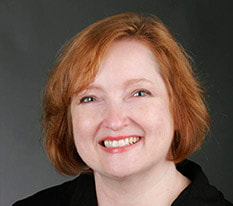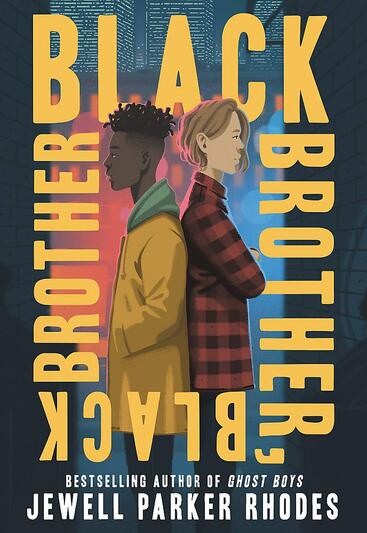|
We are pleased to welcome Dr. Melanie Hundley to the blog this week! Aside from being a Monday Motivator curator for YA Wednesday, Dr. Melanie Hundley is a Professor in the Practice of English Education at Vanderbilt University’s Peabody College. Her research examines how digital and multimodal composition informs the development of pre-service teachers’ writing pedagogy. Additionally, she explores the use of digital and social media in young adult literature. She teaches writing methods courses that focus on digital and multimodal composition and young adult literature courses that explore race, class, gender, and sexual identity in young adult texts. She has taught both middle and high school English Language Arts. She is currently the Director of Undergraduate Studies for the Department of Teaching and Learning.
|
Invisibility/Visibility in Rhodes’s Black Brother/Black Brother by Dr. Melanie Hundley
“It’s the play on words, I think,” Kari says quietly. “Donte keeps doing these things with words. He says that his mom thinks they are going to lose. Then he says that he thinks they are going to lose and then he says I’m lost.” She continues, “That stands out to me. It’s smart and subtle and makes me think.” Students in the literature circle nod. Another students picks up on this idea and explains, “He does this with disappearing too. He wants to be invisible and disappear so that he is not seen. But then he uses disappear in a way that make it seem like they were disappeared, like killed.”
They connect this idea with contemporary issues in society and argue about if it is better to be seen or to be invisible. Whether or not they are visible or invisible and whether it is by their choice is central to many of the discussions about school and about books. They return again and again to the multiple ways words are used—lose, lost, disappear, honor, win—and how that helps them think about the story but also about their very own stories.
Who am I?
I am young, black, female
I raise my hand
slowly
because
I am black
and used to bein’ invisible
in THIS place
I hold my books tight
By my chest
try not to stand out
on THAT street
I am black
And scared
That cause I am who I am
Nobody will understand the words locked
In my head.
I am black
And female
And scared
That cause I am quiet
I will be overlooked.
that YOU will not see ME.
In the end after Dante defeats Alan in the fencing match, Dante says,
I barely hear him. It doesn’t matter. I know--Alan sees me. Next time he might win the bout. Or I might. I don’t care.
He can even dislike me if he wants. But now he has to see ME. (p. 228)
Being visible as a person becomes important to Dante. He begins the book wanting an invisibility cloak and ends it confidant the he is seen for who he is. He is Dante. The emphasis in this book on being visible or invisible is something that adolescents identify with in their daily lives. The students in the reading group write about being visible/invisible in their lives. Like Maya, they have questions about whether or not they will be seen. Like Dante, they are trying to be proud of who they are.
In addition to being able to talk about what it means to be visible, Black Brother, Black Brother provides readers with a way to talk about complicated issues of race, class, and families. Dante spends much of the book figuring out who he is in the different spaces he goes—school, home, and the YMCA. Fencing provides an outlet for him, to grow as an athlete, to grow as a man. Mike, a student in the reading group, said, “What I liked is that Dante’s family is a real family; they love each other and they support each other.” Another student said, “I liked the relationship with Coach. There was respect on both sides.” “Relationships matter,” Mike agreed. “and I like how there were so many good relationships not just bad ones.” The students in the reading group focused on how important it was to see that Dante and his family were close and that when there were disagreements, they worked things out.
Black Brother, Black Brother is a book that resonates with readers. What books have brought especially great insights to your classroom lately?




 RSS Feed
RSS Feed